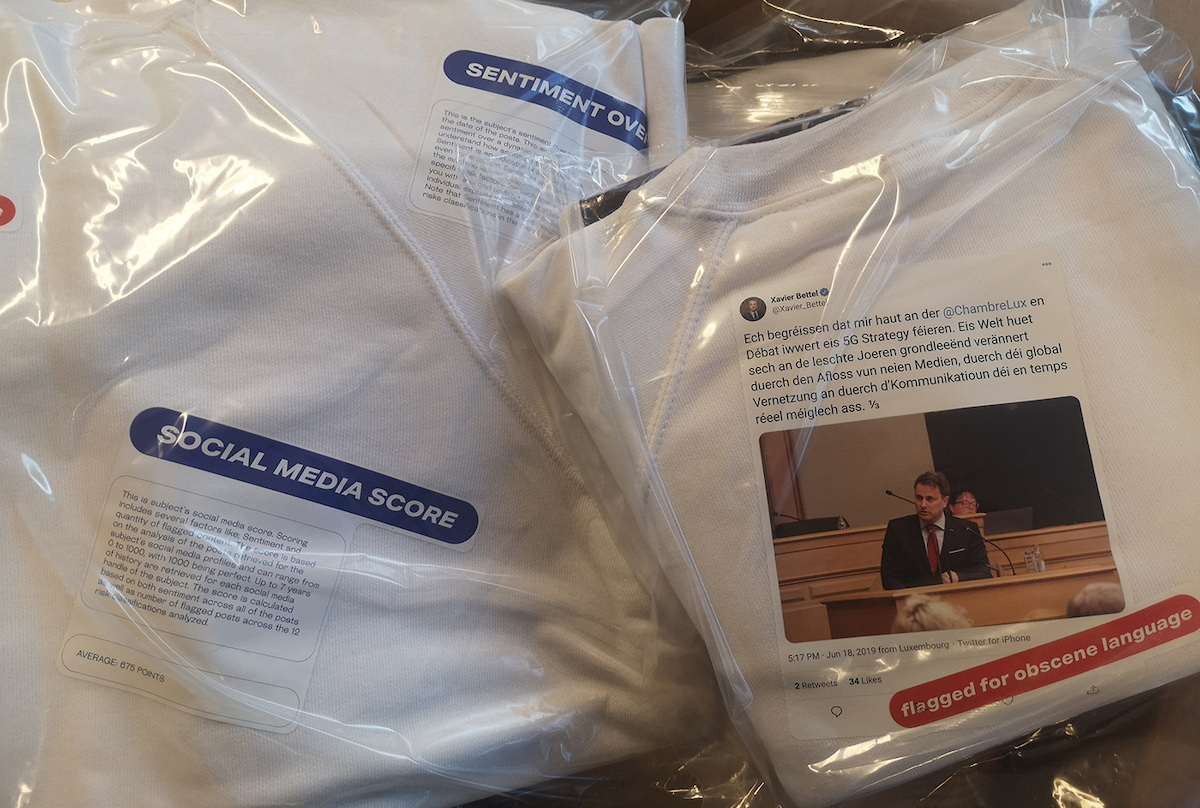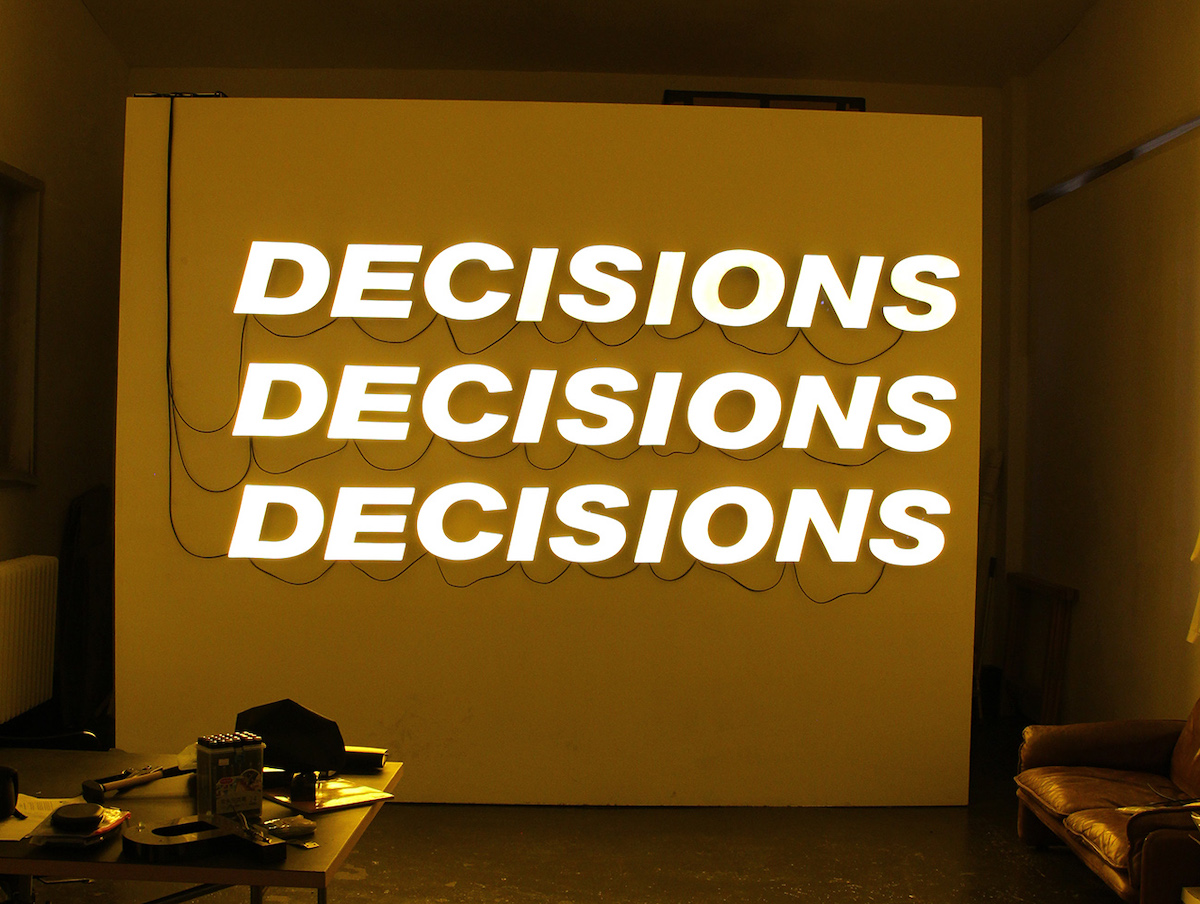!Mediengruppe Bitnik (CH/UK) – Poor Decisions are half the fun
In the form of an audiovisual installation, the exhibition deals with questions of how algorithms automatise people’s work and what is revealed when errors occur in algorithmic automated systems, such as postal systems.
We’re happy to announce the exhibition Poor Decisions are half the fun, which brings the works of the contemporary artist group !Mediengruppe Bitnik back to Rijeka, this time in the framework of Dopolavoro flagship. The exhibition will open on Thursday, December 3 at 7 pm, at Delta Lab (Delta 5, Rijeka), where it will remain on view until January 15, 2021, from Monday to Saturday from 4-8 pm.
Known to the world as !Mediengruppe Bitnik, Carmen Weisskopf and Domagoj Smoljo work on and with the Internet, formulating fundamental questions concerning contemporary issues. Their practice expands from the digital to affect physical spaces, often intentionally applying loss of control to challenge established structures and mechanisms.
Poor Decisions are half the fun presents two of their works: Flagged for Political Speech and DECISIONS DECISIONS DECISIONS.
Flagged for Political Speech (2020)
27 custom-printed sweatshirts, 27 hangers, metal link chains. Dimensions variable

What do algorithms see when they look at your social media profile? Are you a good provider of content? And what exactly is good? What does the algorithmic view on your social media profiles say about you?
Analyses of social media profiles are employed in an increasing number of real-world transactions. From border control to job applications, social media profiles are used to assess the threat-levels of a candidate and verify their suitability to enter a country or organisaton.
Many of these social media checks are done automatically by algorithmic entities. How and what do these algorithms assess exactly? And what do their assessments look like?
To find out, !Mediengruppe Bitnik used Ferretly, an automated online service used by Human Resources Professionals to evaluate candidates’ social media profiles. Ferretly uses algorithms trained on keywords and image recognition to sift through 7 years of social media history. The service evaluates candidates publically available social media posts on Twitter, Instagram and Facebook, analyzing original posts, reposts, replies, and likes. Additionally, Ferretly willassess any news items they can find.
With their service, Ferretly promises to reduce the risk of letting a person displaying toxic behaviour into your organisation or country. Toxic behaviour is defined in 11 risk categories, from hate speech, political extremism, drug-related content to explicit images and toxic language. The publicly available posts are also used to look at the sub-text of each post: the candidate’s attitude towards the event or situation they are posting about is rated as positive, negative or neutral. Each candidate is judged according to these per-defined flags and sentiment points and given a social media score which rates them as fit or unfit for entry.
!Mediengruppe Bitnik ran the social media profiles of the leaders of each of the 27 EU member states through the service. Bitnik then interpreted the results of the analysis and used this as the basis to devise a customized sweatshirt for each of the 27 profiles.
Each shirt shows Bitnik’s interpretation and visualization of the Ferretly ratings. Besides their social media scores for different parameters, each of the shirts publicly displays a number of flagged posts which were rated by Ferretly as toxic and the reason for this rating. Depending on the report, the shirts contain more or less data. Usually more posts and data meant a worse social media rating by Ferretly.
Like the clothes we wear, our social media profiles have become the carrier of our identities. These online identities are used more and more by the gatekeepers of institutions, countries and organisations to verify that we are worthy of access.
DECISIONS DECISIONS DECISIONS (2020)
27 LED illuminated letters addressed and posted to two exhibition spaces in 27 separate cardboard boxes, transformers and cables, chrome-plated pipes, hangers, TV screen with tracking website, full screen, 16:9

The work DECISIONS DECISIONS DECISIONS seeks out the imperfections in the logistic systems in which nowadays computers calculate nearly all necessary decisions. To do so, 27 packages were shipped out from Berlin via the logistics services provider DHL. Each package was, however, given two delivery addresses: one for Aksioma in Ljubljana and one for Drugo More in Rijeka. One address on each side of the parcel.
The resulting installation at the two exhibition spaces is formed from the letters that randomly arrive at each location, leaving the authorship of work as much to the artists as the postal machines.
Before reaching their final destinations, many of the parcels travel back and forth between different postal facilities. Depending on which side is scanned, they change directions multiple times. A TV screen sitting on the floor of the gallery shows the recordings of the movements for each parcel, documenting the surrealist journey of the piece.
The now empty boxes are presented in the gallery as the remaining envelop of the work and skeletons of the process.
The work experiments with forcing a decision-making process on the postal system which does not usually decide – only routes. The work reinterprets The Postman’s Choice by Ben Vautier from the year 1965 in which a postal worker decides where a postcard that has two delivery addresses is finally to be sent. As it was back then, the standard rule in digital shipping operations is that for every shipping unit there must be one sender and one clear recipient.
In todays fully automated logistics systems, it is no longer the postman’s choice, but rather a question of which side of a parcel is “up” for the automated scanning process to read. The logistics system works mechanically by means of barcodes, scanners and programmed directives. Until the human supervisor spots and corrects the anomaly of the undecided recipient.